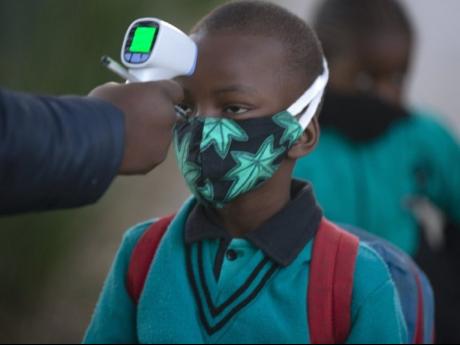Africa’s confirmed coronavirus cases now above a half-million as South Africa becomes a global hot spot
JOHANNESBURG (AP) — Africa now has more than a half-million confirmed coronavirus cases.
The continent-wide total is over 508,000, according to figures released Wednesday by the Africa Centers for Disease Control and Prevention, after South Africa recorded another day of more than 10,000 confirmed cases as a new global hot spot.
The true number of cases among Africa’s 1.3 billion people is unknown as its 54 countries continue to face a serious shortage of testing materials for the virus. “A tremendous problem, a real crisis of access,” the World Health Organization’s Africa chief, Matshidiso Moeti, said last week.
So far most testing has been concentrated in capital cities, but infections in many cases have spread beyond them.
Africa’s health systems are the most poorly funded and thinly staffed in the world, and already more than 2,000 health workers have been infected by the virus, according to the WHO.
This week alone, some anxious health workers in Nigeria, Zimbabwe, Congo and Sierra Leone have gone on strike or for adequate protective gear or better pay.
The African continent has just 2.2 health workers — and 0.3 doctors — per 1,000 people, according to the WHO.
Experts have warned that even if badly needed supplies such as ventilators are provided to African nations, another challenge is having enough trained workers to operate them.
Africa reaches the half-million-case milestone as a growing number of its countries decide to to commercial flights, saying their economies are sick, too. Months of closed borders bought time to prepare for the pandemic but hurt the delivery of badly needed humanitarian aid.
Follow The Gleaner on Twitter and Instagram @JamaicaGleaner and on Facebook @GleanerJamaica. Send us a message on WhatsApp at 1-876-499-0169 or email us at onlinefeedback@gleanerjm.com or editors@gleanerjm.com.

